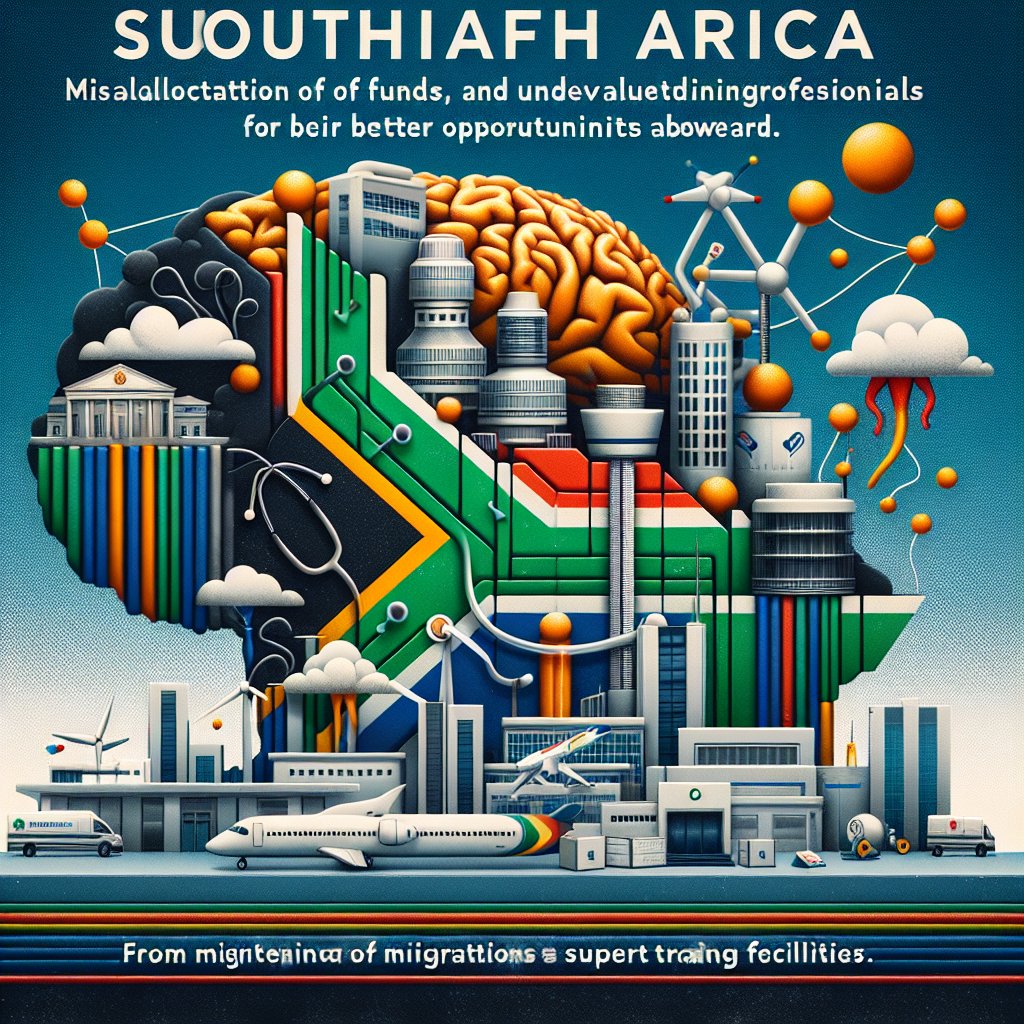Image created by AI
Brain Drain and Mismanagement Eroding South African Healthcare
The health care system in South Africa is facing a paradox that undermines the very fabric of its functionality. It isn't just the shortage of medical professionals that hampers the quality of care; it is the systemic hemorrhage of talent and resources, exacerbated by misguided government policies, that propels the sector towards a tipping point.
South Africa is equipped with universities and training colleges that are recognized on the global stage for their high standards. The irony, however, is that despite the country's potential to cultivate top-tier medical talent, there is a mass exodus of health professionals. Each year, thousands of nurses, doctors, and other clinicians, whose education has been heavily invested in by the South African fiscus, leave for more attractive opportunities overseas. This phenomenon is colloquially known as the 'brain drain' and it presents a substantial challenge to the sustainability of health services.
The problem, fundamentally, is not the availability of qualified medical professionals but rather the system's failure to employ and retain them. Part of this failure is due to the debilitating levels of corruption and state capture that have drained vital funds from maintaining institutions of excellence. Consequently, universities and other training institutions are battling with reduced funding, affecting not only their operational capabilities but also compromising the quality of graduates.
In a striking contradiction, the South African Department of Foreign Affairs is using taxpayer money to fund the education of future health care professionals in countries like Russia, Ukraine, and Cuba. This controversial policy involves significant expenditure on visas, accommodations, and several flights, yet the quality of education these students receive abroad is often subpar compared to what could have been provided domestically.
Upon their return, these graduates face monumental challenges. The adjustment to the South African medical system is fraught with bureaucracy, leaving many unable to practise their profession. Even after years of waiting, numerous freshly trained doctors remain unemployed, their skills untapped and their morale destroyed.
This inefficiency extends to the nursing sector, where South African nurses are financially undervalued, to the extent that they answer international job postings. Reports suggest that these nurses can earn up to five times more abroad, with far superior working conditions.
It raises a critical question: why is the government willing to invest substantially in foreign training when these funds could enhance domestic training, ensuring higher-quality education and boosting employment opportunities at home? The current policy contributes not just to brain drain but also brain waste, as skilled professionals are left idle or underemployed.
The situation is a stark reminder of how vital health professionals are to the national system. Suggestions that new medical faculties may be established by universities seem like a move in the right direction, but without sufficient government support, these initiatives may fall flat.
The dire circumstances of healthcare in South Africa are a reflection of public sector mismanagement and a disregard for the nurturing of local talent. There is an urgent call for reform. The hope lies in the advent of a new governmental approach, one that will recognize the errors of the past three decades, prioritize the fair treatment and adequate remuneration of healthcare professionals, and commit to rebuilding the country's prestigious institutions.
The issues plaguing the healthcare sector are indicative of a broader malaise within the governance structures. The continuous cycle of underinvestment, misallocation of funds, and insufficient support for local talent development must be interrupted. Otherwise, South Africa risks losing not just its current generation of medical professionals but also its ability to cultivate future ones.


